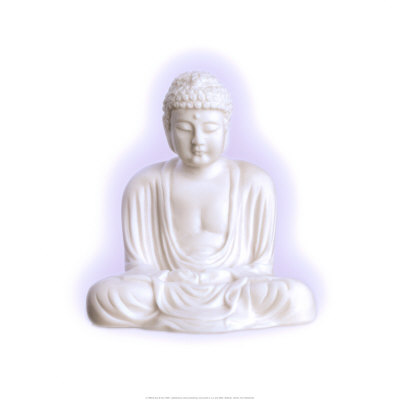
SOUL RESEARCH INSTITUTE
(866)-397-6939, 719-488-0548, 303-507-5169

SEARCH
What Karma Is
Karma is simply a ‘mental action.’ It is a ‘volitional action.’ It is ‘willful action.’
Since volition is a mental phenomenon, karma is also a mental phenomenon. It is through-in and through-out a mental (non-material) phenomenon and nothing else. It is not a storehouse of ‘things’ or ‘deeds’ possessed or owned by an entity. It does not belong to a person or a being. It is simply a phenomenon of ‘volitional action.’
Volition is not exactly karma but the most important factor responsible for generating karma. It is like the seed of karma. Without volition, there cannot be any action through mind, speech, and body. The element of Volition generates action (karma) when it conjoins with unwholesome or wholesome mental elements. In other words, pure volition is not karma but the unwholesome or wholesome volition is. So, basically, unwholesome or wholesome volition generates karma.
Generated karma accumulates to form ‘Stored-up karma’ or ‘volitional formations.’ The seed of karma (volition), generated karma (volitional action), and stored-up karma (volitional formations) give rise to the ‘Karma-Result- the fruit of karma.’ In other words, we can say that the fruition of karma results from the sum total of volition, volitional action, and volitional formation. The difference between these three mental phenomena lies in the difference in their potency to generate mental action.
(See Slide)
An artist cannot paint a picture unless there is an artistic-volition, "will" to paint. Once there is this volition, he starts creating a mental image of what he wants to paint. He then physically starts painting this mental picture that has come to his mind. He continues the painting until it is completed.
In this example, seed of karma is the ‘artistic volition’ or ‘will’ to paint. The mental image of the picture is the ‘mental action’ which results from the artistic volition. The bodily action of painting is the ‘physical action’ which results from mental action. This mental and physical action is ‘generated karma.’ So, while an artist is imagining and painting the picture, he is generating karma. This generated karma accumulates and forms the volitional formations. They are like the sum total of the generated karma. These volitional formations are the ‘stored-up karma’ which further leads to artistic-volition. These volitional formations are what ultimately behind the artistic mind of an artist.
Once the painting is completed, what we get is an impression of all the karmas, which is called the fruit of karma or ‘karma-results.’ The finished painting is like an outward expression of the karma-results. It is the fruit (karma-result) of the sum total of all karmas (artistic volition, actions, and volitional formations).
Just like the painting, our embodiment (body-mind-consciousness) is an expression of the fruit of our karma or karma-results.
The word ‘karma’ is used loosely to sometimes denote just the qualitative volition (karma) or just action (generated karma) or just volitional formations (stored-up karma) or a combination thereof. These various karmas are basically the same because they are all mental phenomena. As I mentioned earlier, they only differ in their ‘potency’ to create or generate fruits.
For example, volition itself does not have enough potency to cause re-birth or death. For the fruit of rebirth or death or such significant result, we need the potency of stored-up karma or an equally powerful karma.
As long as we understand that karma is a mental phenomenon, it really does not matter how the word is used. As long as we understand that all actions (wholesome or unwholesome), all deeds, all creations, all happenings are rooted in karma, we can say that we understand karma. When we have such understanding, we begin to look at this world, this existence, as an expression of the phenomenon of karma. This becomes quite clear once we understand the four laws of Karma.
The First Law of Karma
The Law of Perfect Accountability of Action
Volition when combines with wholesome mental elements (such as Non-greed, Non-Hatred and Non-Delusion) results in wholesome mental, physical, and verbal actions. These actions produce wholesome results (fruits) in accordance with the quality of volition. In other words, wholesome karma produces wholesome karma-results. Similarly, unwholesome karma produces unwholesome karma-results. This is the first law of karma.
(See Slide)
A seed of mango will only generate a mango tree which will bear sweet mango fruits. A seed of lemon will only generate a lemon tree which will bear sour lemon fruit. A seed of lemon cannot generate a mango tree. A seed of mango cannot generate a lemon tree.
Similarly, wholesome karma of ‘service’ or ‘meditation’ produces wholesome karma-results. What are the wholesome karma-results? Fundamentally, they are wholesome volitional formations which eventually generate states of wholesome consciousness or wholesome mental patterns such as contentment, generosity, loving-kindness, faith, tranquility, merit, happiness, peace, and egolessness.
Unwholesome karma of ‘ill will’ or ‘covetousness’ produce unwholesome karma-results. These are fundamentally the unwholesome volitional formations which eventually generate states of unwholesome consciousness or unwholesome mental patterns such as craving, aversion, stupidity, vanity, pride, pain, suffering, misery and ego. This is how the first law of karma functions.
The wholesome or unwholesome volitional formations (stored-up karma) give rise to volitional seeds which bear fruits (karma-results) when favorable conditions are present. Just as a newly produced mango seed cannot generate a new mango tree unless there are favorable nutrition and temperature conditions (soil, water, minerals, warmth, etc); the newly produced volitional seeds cannot produce consciousness-mind-matter unless favorable conditions exist. This is the law of conditionality which sustains and maintains the law of karma.
It is obvious from the mango-lemon example that the law of karma is fixed. It cannot be changed. It rules its own operation. It sustains itself. There is no outside power or inside power ensuring its efficacy. The law itself is supreme. Therefore, it is unintelligent and unwise to credit some Overlord or some Fixed-Entity for this supremacy, especially when the law is so obviously expressing itself in all aspects of our existence.
Volitional formations (or stored-up karma) are somewhat similar to memory, impressions, reactions, etc. The phenomenon of formation or accumulation is not to be confused with the formation of some subtle entity or ‘being.’ It simply forms; therefore, it is called the phenomenon of formation. It simply accumulates; therefore it is called the phenomenon of accumulation.
These are mental phenomena. They are responsible for generating mental patterns or mental/ethical qualities. Wholesomeness or unwholesomeness is a mental pattern, a particular mould. They are a bending. They bend the pure mental phenomenon on its object by imparting their qualities.
A seed of mango does not take its form instantly. It acquires a particular form due to accumulation of matter. Similarly, a wholesome or unwholesome mental pattern is formed due to accumulation of karma. A mental pattern of ‘greed’ is formed due to accumulation of greedy actions/reactions over a vast period of time. A mental pattern of ‘faith’ is formed due to accumulation of faithful actions/reaction over a vast period of time. A mental pattern of ‘mindfulness’ is formed due to accumulation of mindful actions (such as meditation) over a vast period of time. Such understanding leads us to the second law of karma.
The Second Law of Karma
The Law of Mental Action-Reaction
Karma generates karma-results, which, in turn generate further karma bearing the same qualities. This is the second law of karma. It is the law of the ‘round’ of karma.
A seed of mango generates a mango tree. This newly generated tree will only produce mango fruits containing only the mango seed.
Similarly, volition of greed or hatred will only generate greedy or hateful actions, respectively. These actions (the karma) will result in states of wholesome or unwholesome consciousness (the fruit of karma) which will again cause the volition of greed or hatred to arise. Thus, unwholesome karma will always beget unwholesome karma and wholesome karma will always beget wholesome karma.
(See Slide)
We cannot perform unwholesome deeds such as killing, stealing, lying, slandering, etc and get away with it because such actions will always lead to misery and suffering even though it may not be obvious or may not show up right away. Similarly, we need not stop from performing wholesome deeds such as meditating, serving, giving, reverence, virtuosity, etc even if we do not see immediate results because such actions will always lead to merit and happiness. The phenomenon of karma runs on a perfect accounting system; therefore, we should develop fearfulness for wrong-doing and faith in right-doing.
In the advanced stages of mental development, one realizes that, whether it is wrong-doing or right-doing, it is still karma. This karma will beget more karma. This round of karma is the imprisonment we all live in. It is the self-imprisonment. The round of karma must be broken to begin the process of spiritual evolution, which ultimately leads to liberation. This round of karma can be broken by not generating karma, thereby stopping the accumulation of karma. When accumulation stops, the stored-up karma arises to the surface and fuels the existence until the entire stock is exhausted. When this happens, there is no more becoming and associated suffering. Such understanding leads us to the third and the fourth law of karma.
The Third Law of Karma
The Law of Perfect Action
Karma generates results only when it is rooted in delusion (Sense of self, I-ness or the Ego). Egoless action does not generate karma or karma-results. This is the third law of karma.
(See Slide)
Not generating karma does not mean that there is no volition or action. It means that the volition or action is not rooted in craving or aversion. It means that the volition or action is not rooted in the ‘self’ or ‘I’ or ego (the manifestations of ignorance or delusion). Any volition or action without the root of ego does not generate fruits or karma-results that bound us to the round of suffering or imperfections.
Actions rooted in ego are actually ‘reactions’ because they invariably generate karma-results that eventually form mental patterns responsible for reactions. Actions rooted in egolessness do not generate reactions or volitional formations or karma-results. Such actions which do not generate karma-results are the ‘perfect’ actions. Thus, egolessness (selflessness) is the necessary condition for achieving ‘Perfection in Action.’
Such realization is extremely important. Otherwise, our actions continue to be driven by our ego, which takes us deeper and deeper into the misery. Our ego-driven actions make the walls of the prison (that we live in) thicker and thicker.
The enlightened masters perform various activities, however, they do not generate karma-results because their volition is rooted in Egolessness; their volition is rooted in non-delusion or wisdom. Enlightened masters are egoless functionaries. They perform action-less action. Their actions are "non-actions" and not inactions.
If we help someone thinking that ‘we’ are helping, then our action is rooted in ego. If we help someone thinking that a pure volition has arisen to perform a particular action, then our action is rooted in egolessness.
Whenever there is no sense of doer, performer, achiever, executor, etc in our actions, the actions become effortless, easy-flowing, smooth, impeccable, flawless, immaculate, pure, and perfect. Majority of extraordinary work in art, science, and humanities has resulted from such actions.
The Fourth Law of Karma
The Law of Emptiness
There is no fruit (karma-result) inside the karma. There is no karma inside the fruit (karma-result). The fruit and karma are devoid of each other. They are totally different from each other. They are separate phenomena altogether. And yet, the fruit cannot occur without the karma. Its occurrence depends wholly on the karma. This is the fourth law of karma, which is subtle.
As we all know, milk can be made into curd and curd can be made into butter. Without milk, we cannot make curd and without curd, we cannot make butter. In this milk-curd-butter relationship, there is no milk inside the curd or inside the butter. Similarly, there is no curd inside the milk or butter. Milk, curd, and butter are all devoid of each other. They are distinctly different. And yet, curd or butter cannot be made without the milk, or, butter cannot be made without the curd.
When milk changes to curd, there is no milk left in the curd. When curd changes to butter, there is no milk or curd left in the butter. Thus, neither milk (the beginning cause in this case), nor anything else such as a fixed or permanent entity underlies the milk-curd-butter phenomenon. There is no unchanging substance that transmigrates from milk to curd to butter.
Thus, milk-curd-butter is just a phenomenon which goes on by itself depending upon the laws of karma, the law of conditionality, and the law of interdependence.
Similarly, childhood-younghood-adulthood-old age-death-rebirth…...death……rebirth is just a phenomenon driven by the laws of karma, the law of conditionality, and the law of interdependence. There is no single fixed ‘being’ or ‘I’ or an ‘individual-soul’ that is aging, dying, taking re-birth, aging and dying again. At the same time, there is no aging and death without the birth, and there is no rebirth without the death. Thus, birth-aging-death-rebirth…..death…..rebirth…..death….is just an interdependent phenomenon and the phenomenon goes on by itself.
Whether it is a birth of our body or a thought or an emotion or a circumstance or a situation, whatever it may be, it is all empty of ‘self’ or ‘I’ or any fixed being. It is all empty of an owner or a carrier (such as an individual-soul). Everything that happens in creation is only a phenomenon of karma which works within the law of cause and effect.
There is nothing fixed or permanent that moves from past to present to future. At the same time, there is no present without the past and no future without the present. What this means is that the ‘Past’ is simply a term used for ‘conditions’ that existed before the present. Present is simply a term used for ‘conditions’ that currently exist. And, ‘future’ is simply a term used for the ‘probability of conditions’ based on the present. The phenomenon of Karma binds these conditions, thereby creating the illusion of past-present-future, the continuity of our existence. The truth of ‘phenomenon’ underlies everything in existence. Phenomena alone flow on….
Understanding this, we should perform all actions. If we do that, we will notice how our actions start becoming more and more effortless. We will then notice how our activities become more and more playful and delightful. We will then notice how the word ‘work’ begins to fade away from our dictionary.
What this means is that, even when we are working, we don’t feel that we are working.
For example, I am writing for this website. I don’t feel it is me who is writing. I honestly feel that there are these volitions and there are these words that are being put on the website. I feel that the mental and physical ‘phenomena of making this website is simply going on.
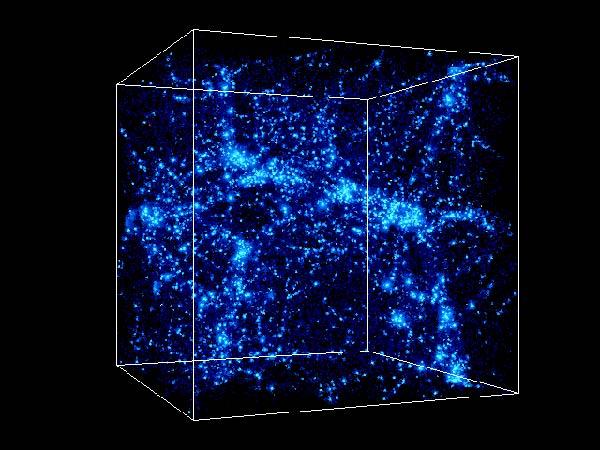
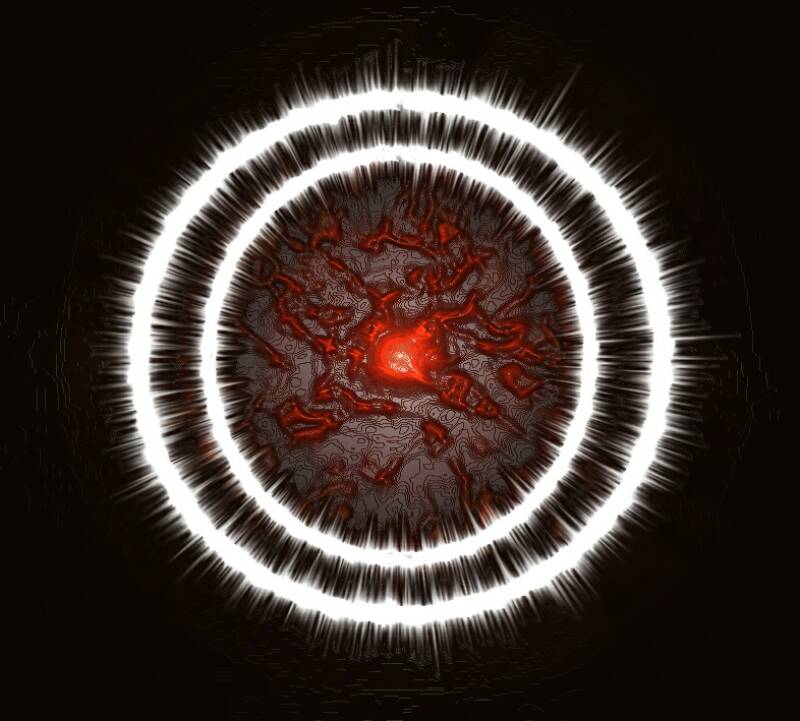
K A R M A
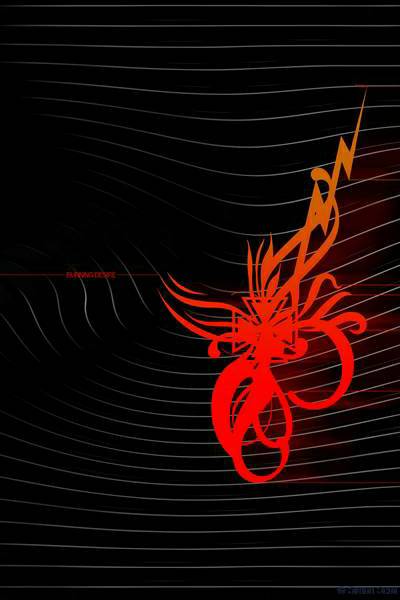
You might be wondering that, unless I choose to make this website, how can it happen or come about?
The reality is that, I am not choosing to do this! Quite honestly, it is really just happening!
Let me discuss the ‘phenomenon of choice’ in order make myself more clear.
The Phenomenon of ‘Choice.’
Earlier, during our discussion on the cognitive processes, we defined ‘choice’ as none other than the wholesome or unwholesome consciousness that arises at the climax of the cognitive process.
(See Slide)
This wholesome or unwholesome consciousness is basically what karma is. So, we can now say that ‘choice-making’ is basically a karmic activity. However, as implied by the four laws of karma, there is no choice-maker behind the choice.
Choice-making is simply a mental phenomenon.
Choice is an action or reaction. It is primarily a ‘reaction’ when unwholesome consciousness arises at the climax of the cognitive process; but, because of ego (delusion), we feel ‘we’ have made a choice. What actually happens is just a reaction to the event.
Similarly, choice is primarily an ‘action’ when wholesome consciousness arises at the climax of the cognitive process; but, because of ego (delusion), we feel ‘we’ have made a choice. What actually happens is just an ‘action’ which is wholesome. The quality of this action depends upon the quality of the present karma at the moment. In both cases, whether action or reaction, it is the ripening of stored-up karma (the impulsions) coupled with the present karma (volition) that conditions the phenomenon of choice. (See example below)
Let us say, you are extremely hungry and you are asked to choose between salad and a double cheese pizza. You ignore pizza and choose the salad. In this case, what happens is as follows: The moment you see food, there is a desire to eat. This desire is nothing but the arising of sense-consciousness rooted in greed. This sense-consciousness is the manifestation of stored-up karma (the impulsions) and it arises at the climax of the cognitive process. Now, because you are mindful and non-reactive (due to your meditative practice), there is a volition for nourishment and health. It is this wholesome volition which counteracts the unwholesome sensual greed, reduces its strength and overcomes it. So, you end up ignoring pizza and choosing the salad. Thus, instead of reacting, you act. If the wholesome volition does not arise, then you simply react, which means, you choose to eat pizza.
In this example, the impulsion of unwholesome consciousness (desire to eat pizza) is related to the stored-up karma and the wholesome volition (choice of salad) is related to the present karma. This present karma or volition is called the ‘choice’ in common language.
Similarly, the impulsion to eat pizza is also called the choice in common language, even though you are really not choosing but simply succumbing to the impulsions.
Choice is thus a mental phenomena rooted in impulsions or volition. It is not the act of some hidden choice-maker.
Broadly speaking, the contents of this website revolves around how to develop the wholesome volition of ‘meditativity’ so that more and more wholesome choices are made and unwholesome impulsions are eradicated. I am confident that, if various teachings discussed in this website are practiced ardently and consistently, a stage will come in the practitioner’s life when there will be no unwholesome impulsions during the cognitive process. There will be no more reactions.
We all know how harmful and detrimental it is to live in a reactive mode of life. We all want to be taking ‘action’ in our life. In order to do that, we need to develop the volition of meditativity so that we become mindful of unwholesome impulsions, non-react to them, and be able to take wholesome action.
Therefore, the most important and profitable volition is the volition of ‘meditativity.’ It is the real beneficial action. Or, you can say that it is the best choice.
The volition of meditativity facilitates the development of mindfulness, non-reaction, wise-attention, and concentration. Without these four wholesome qualities, it is utterly impossible to not react to majority of unwholesome impulsions, because, these impulsions have formidable power and their power comes from the roots of greed-hatred-delusion (the makers of ego).
Meditativity can only bring ‘perfection’ in all actions. The action may be as trivial as plucking a flower or as significant as saving someone’s life.
We should perform all actions with meditativity. In other words, we should do everything as a ‘meditation.’ This is the best ‘choice’- if you want to call it that.
Right Choices and Wrong Choices
It is very clear from our discussion of cognitive process, that, there is really no choice-maker. There is only ‘volition,’ which is mistaken as the ‘choice.’ So, in general, if there is wholesome volition, then it is a right choice. If there is unwholesome volition, then it is a wrong choice.
(See Slide)
Wholesome volition comes from wholesome mind (non-greed, non-hatred, equanimity, mindfulness, faith, wisdom, compassion, sympathy, empathy, etc). Unwholesome volition comes from unwholesome mind (Greed, hatred, delusion, sloth, torpor, doubt, worry, etc).
When right choices are made, they may not bring immediate benefits. When this happens, we are disappointed and discouraged because of our habit of expecting ‘quick’ results. This impatience is a huge hindrance for the continuation of spiritual practice. Therefore, it is very important to remain patient. It is important to develop faith in the Laws of Karma which is a perfect accounting system. It will not allow the wholesome efforts to go waste. The wholesome efforts will always generate merit.
The more merit we generate by performing wholesome deeds, the more impulsion there is for the arising of the volition of meditativity. Merit increases exponentially with the practice of meditation. Ultimately, merit is the stored-up karma of wholesomeness (non-greed, non-hatred, equanimity, mindfulness, faith, wisdom, compassion, sympathy, empathy, etc) and, the fruition of merit is ‘egolessness’ – the ultimate reward.
The word "choice" has a sense of ego hidden in it. In common language, we say that ‘we have made a choice.’ We think it is ‘us’ who is making choices. In order to remove this illusion, it was necessary to discuss the phenomenon of choice. Otherwise, karma and choice are one and the same thing.
Now, let us talk about desire which is also related to karma.
The Phenomenon of Desire
There is Bare-Desire and then there is wholesome-Desire and unwholesome-Desire.
Bare-Desire means a desire to act or to perform an action. As we have discussed earlier, Bare-Desire is a special mental element (see chart of mental elements) – a unique mental phenomenon. If mind were a monkey-cartoon, then Bare-Desire would be a ‘stretched’ monkey-cartoon ‘searching’ for something. This ‘stretching and searching’ are key features of the mental phenomenon of Bare-Desire. The phenomena of "Inclination" or "Intention" are somewhat like Bare-Desire.
Bare-Desire is a mental element just as Volition is. In this sense, bare-desire is similar to volition. However, Volition is an essential mental element which is always present in all mental phenomena. Bare-Desire, on the other hand, may or may not be present in all mental phenomena. Without volition, mental phenomenon cannot occur. But, without Bare-desire, mental phenomenon can occur.
When the element of Bare-desire is present along with wholesome elements, then it becomes a wholesome-Desire. When it is present along with unwholesome mental elements, then it becomes an unwholesome-Desire. A desire to give (or being generous) means there is ‘Bare-Desire’ and there is ‘Non-Greed’ combined. A desire to acquire more means there is ‘Bare-Desire’ and there is ‘Greed’ combined. Thus, Bare-Desire, in itself, is neither wholesome nor unwholesome. It is ethically neutral. On the other hand, karma is either wholesome (volition) or unwholesome (volition).
(See Slide)
Pure water is colorless. When you add blue color to it, it becomes blue in color. When you add red color to it, it becomes red in color. Pure water is like the Bare-Desire. Blue and red water are like the good and bad desires.
You might ask, aren't desires generally considered bad from a spiritual perspective?
Like the word ‘karma’, ‘desire’ is another word that is used very loosely. Desires which you are mentioning are the unwholesome desires, especially the sensual desires rooted in greed, hatred, and delusion. These desires are always bad for spiritual evolution because they strengthen the ego instead of weakening and eradicating it.
Nothing great is possible without arousing the element of Bare-Desire or without having an inclination or intention. However, it is called ‘Bare-Desire (intention or inclination)’ only if, it is neither craving nor wanting.
Enlightenment or anything else that is great, is not possible without desiring for it ‘wholesomely.’ The desire for enlightenment is a supra-wholesome desire because it is predominantly governed by non-delusion (wisdom or egolessness). It is not a desire of a deluded ‘person’ who is striving for or craving enlightenment. It is a bare-desire conjoined with all the wholesome qualities including the dominant faculty of wisdom.
How to Find the "Real Purpose" of Life
When we do something as a hobby, we don’t have any craving in it. I mean, we don’t have a desire to achieve anything, even though we may spend hours pursuing it. We just do it as a hobby. We just play guitar, or just paint, or just make clay pots. There is no wanting there. Bare-Desire is kind of like that. So, we should have "Bare-desire" and not a desire.
In traditional language, I would say, action should be driven by ‘Chhanda’ (Bare-desire) and not ‘Iccha’ (ego’s desire). Chhanda or Bare-desire is commonly termed as the ‘Real Purpose’ of life. So, we should find out this ‘real purpose.’ It can change our life from misery to mastery.
A simple practical way to find out the ‘real purpose of life is to start minimizing unwholesome mental actions (Bad Karma) and maximizing wholesome mental actions (Good Karma). Whenever there is a sense of greed or hatred, we should abandon the action. Whenever there is a sense of ego, we should abandon the action.
Following are some examples of actions that need to be abandoned:
Unwholesome actions rooted predominantly in greed: Dishonesty, stealing, corruption, bribing, fraud, hoaxing, scamming, coning, bating, gambling, sexual misconduct, sexual overindulgence, lust, passion, possessing, womanizing, illicit-ing, extra-marital affairs, pornography, stalking, pestering, acquiring, gathering, craving, attaching, accumulating, longing, yearning, wanting, exhibiting, showing-off, lying, flattering, intoxicating, excessive partying, excessive entertaining, excessive consuming, excessive fun, excessive, cheering, dominating, and creating anything greedily.
Unwholesome actions rooted predominantly in hatred: Killing, violence, anger, fighting, antagonizing, punishing, malice, competing, frustration, irritation, wining, complaining, slandering, criticizing, condemning, accusing, arguing, resenting, becoming jealous, envying, repenting, regretting, enslaving, poisoning, weaponizing, etc.
Unwholesome actions rooted predominantly in delusion: Worrying, feeling restless, behaving shamelessly, lazing out, manipulating, self-satisfying, showing over-confidence, overreaching or holding back, showing arrogance, self-aggrandizing, self-mortifying, taking pride in one’s deeds, doubting, believing without understanding, performing rituals without understanding, worshipping without understanding, dogmatizing, indoctrinating, systemizing, traditionalizing, standardizing, politicizing, opinionating, judging, justifying, validating, proving, forgetting, sorrowing, crying, celebrating, fearing, bewildering, mystifying.
Following are some examples of wholesome actions that need to be repeated, practiced and maximized:
Helping, serving, rejoicing, giving, gifting, caring, respecting, admiring, wondering, observing silence, listening, smiling, honoring, devoting, establishing faith with understanding, worshipping with understanding, neither believing nor non-believing, moderate acts of consumption, sexual piety, developing pure understanding, fearing wrongdoing, equanimous observing, concentrating, studying and learning spiritual disciplines, meditation, healing, detaching, renouncing, non-adhering, guarding mindfulness, non-resisting, non-opposing, agreeing, befriending, promoting welfare, trusting, resolving, non-wobbling, non-forgetting, remembering, balancing, neutralizing, non-discriminating, equalizing, non-disturbing, cooling, resting, lightening-up, non-hindering, wielding, enabling, promoting virtue, appreciating, thanking, forgiving, gladdening, enjoying, removing other’s suffering, attending wisely, concentrating, simplifying, penetrating, investigating, contemplating, discovering, co-operating, sympathizing, empathizing, just being.
We should abandon all unwholesome actions and perform only wholesome actions. Most importantly, we should perform all actions with mindfulness, non-reaction, wise attention, and concentration. If we do that, eventually, a stage automatically come when our actions are driven by ‘Bare-Desire’ or by the real purpose of our life. This stage always comes in lives of those few people who consistently strive for self-improvement and self-realization.
Most often, this stage comes during the mid-life period (age of 35-45 yrs). It is commonly and mistakenly known as a mid-life crisis. It is actually not a crisis but a blessing in disguise. We can see the blessing in it if we develop meditativity. Majority of people miss this golden opportunity and end up living the same rut for the rest of their lives.
Once we find out our ‘real purpose,’ and act on it, then our creativity unfolds. Our newly-found work becomes tireless and delightful. There is joy in what you do. There is bliss in action. Eventually, through such actions, wise people establish themselves in the purity of non-self. This is the way of purification by action.
Some people wonder whether they can really find a ‘real purpose’ and live it? These people believe that they really dont have a chance because they feel that they are driven by their Fate or Destiny.
The Phenomena of
Chance, Fate, Destiny
Chance, fate and destiny are simply mental phenomena sustained and supported by the phenomena of karma, and together, they form our luck. There is chance, fate and destiny. But, there is no owner of it. Just like there is choice but no choice-maker, there is fate but no owner of the fate; there is destiny, but no owner of destiny.
Chance, fate, and destiny are fundamentally similar in their characteristics except for their potency or strength in generating karma-results. Fate is stronger than chance and destiny is stronger than fate in generating the probability and conditionality for future occurrence. Chance is chance. Fate is ‘greater chance.’ Destiny is ‘greatest chance.’ Most significant phenomena such as gender-selection, birth, death, etc generally occur due to the phenomenon of fate or destiny and not by chance. See Figure 12.1.
Chance is the phenomenon of probability. It is the phenomenon of likelihood. There is a greater chance of peaceful death if we generate wholesome karma. There is a greater chance of painful death if we generate unwholesome karma. Chances of having good fortune are more for those who perform wholesome deeds than for those who perform unwholesome deeds. Having said that, please understand that we still have a chance, which means, we can still choose to perform only wholesome actions and to abandon unwholesome actions that I listed earlier. If we do that, consistently and ardently, we can eventually change the ‘direction’ of our fate and destiny. We still have a chance to make a right choice right now. Please remember that nothing goes unnoticed in the universe. The perfect accountability of the laws of Karma not only gives immediate fruit but also long-term karma-results which can eventually change our luck.
Basically, it is all a play of karma. In this play, however, we have to play the key role until we are liberated from ego. When ego is finished, the play ends. The drama ends. The hysteria ends. And what begins is the unfolding of the real purpose of life, pure abiding, pure bliss, pure awareness, pure consciousness, suchness. This ‘suchness’ is such that we cannot even imagine!
Copyright 2008 SOUL Research Institute
C
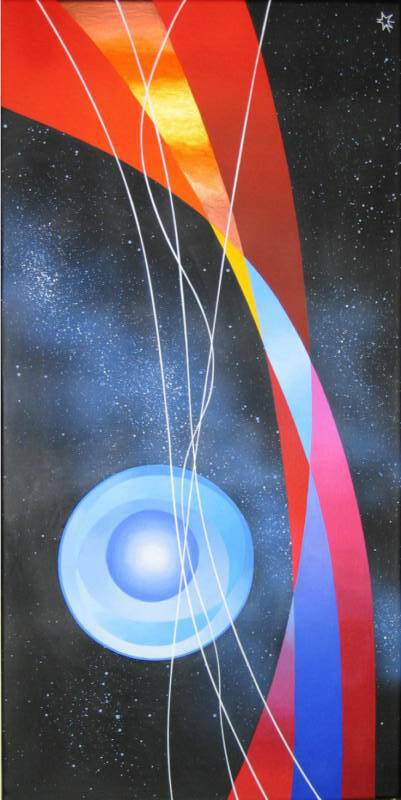
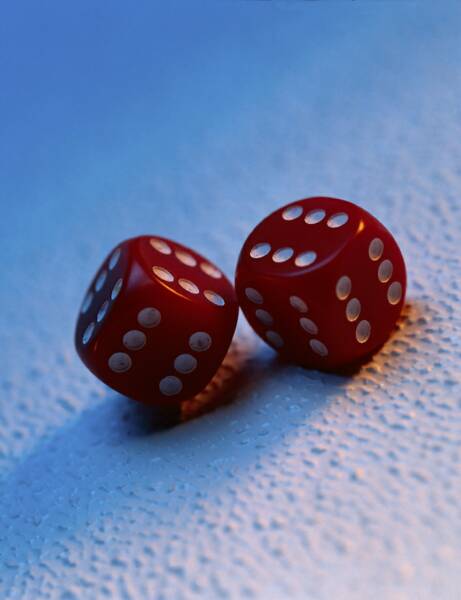
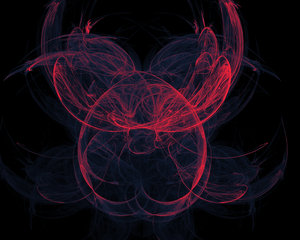
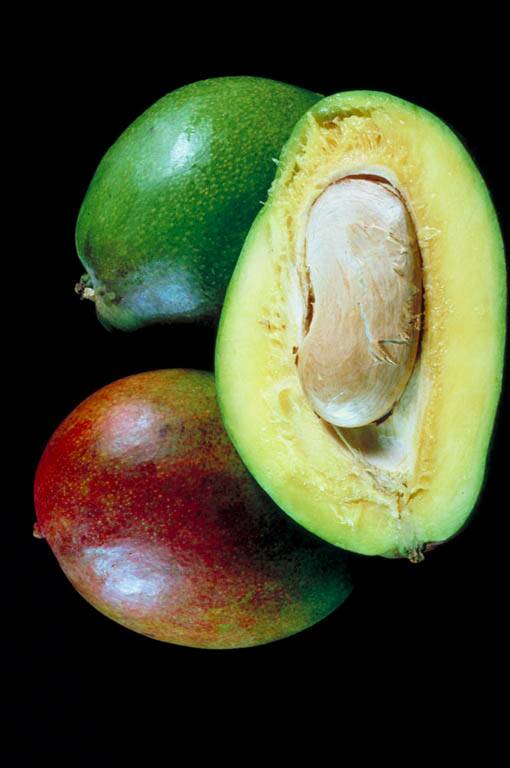
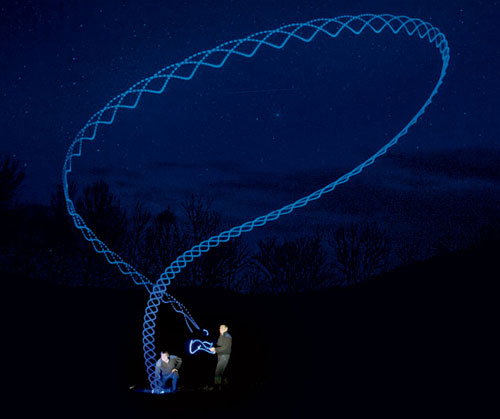



 | ||||
 | ||||

